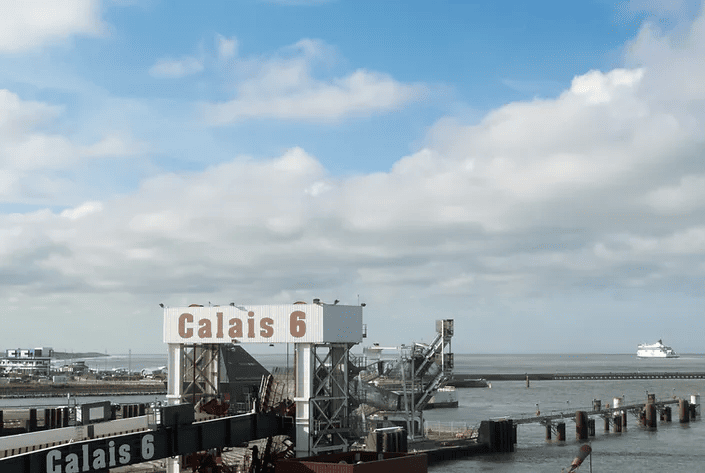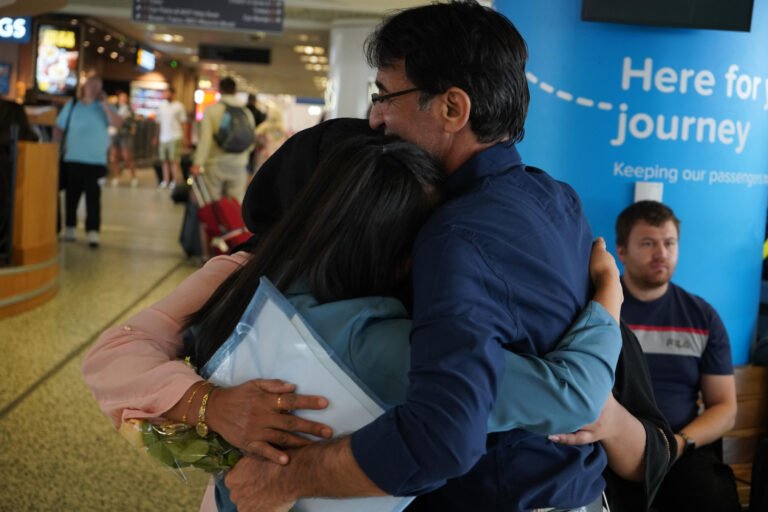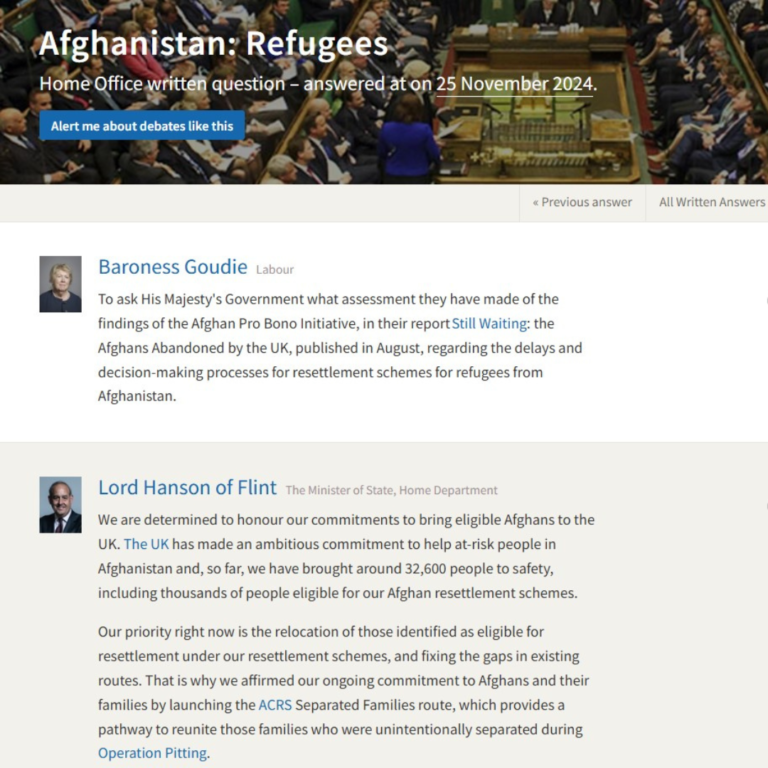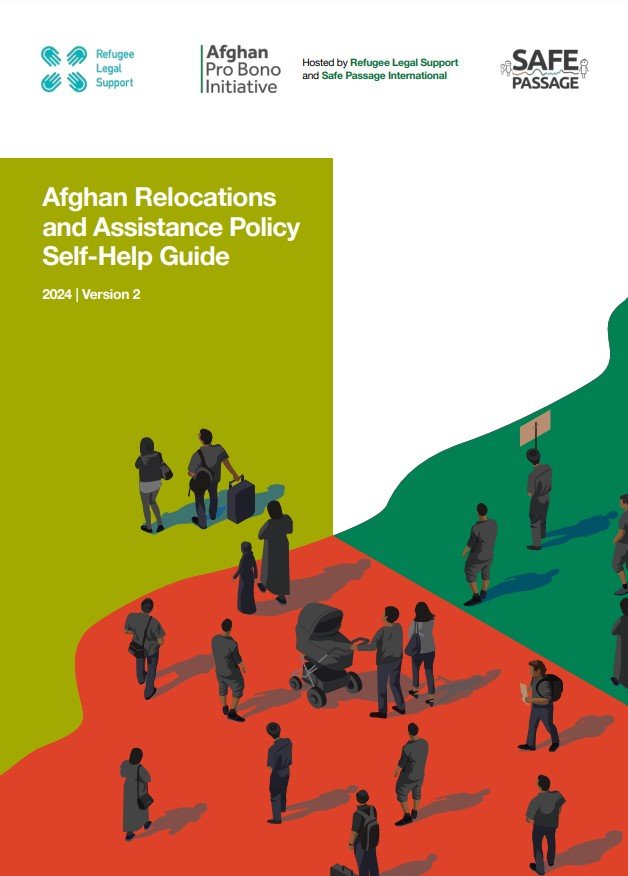“People should not forget what is happening in and outside of Afghanistan and the families who have been affected by it.”
An interview with Rhona French, Senior Caseworker, on the Family Reunion from Europe (FRFE) Project. FRFE is one of our key projects, delivered by RLS in partnership with Coram Children’s Legal Centre and eight commercial law firms.
Thanks for taking the time to talk to us about this when you’re so busy. Firstly, can you tell us about your role?
I’m the dedicated caseworker for RLS’s Family Reunion from Europe project. I work with pro bono lawyers from a number of commercial firms to increase legal aid capacity for family reunion applications from Europe, Turkey and Libya.
This means that after cases are prepared and referred to me by RLS, I help clients to apply to join their family members in the UK.
This can include a range of applications depending on the client’s circumstances, from refugee family reunion to human rights based applications. The work is very varied and many of the cases fall ‘outside the Rules’ of the Home Office, meaning that the cases have an added layer of complexity for clients.
Why is family reunion such an issue for people from Afghanistan?
Many Afghan clients have separated from family members in the most traumatic of circumstances, often while fleeing Afghanistan, which has left them emotionally scarred.
Many are undocumented and have no support in the countries they’re residing in. They’re terrified of registering with or being made known to the local authorities as they have an often well-grounded fear of deportation or removal.
This can lead to all kinds of difficulties for casework. Assisting traumatised clients to prepare an application without a support network on the ground can be very hard on them.
Of course, what makes the most sense for these clients is to be reunited with their family members as soon as possible but the process to do so is long and hard. Naturally, a lot of people can become alienated with it along the way.
Can you tell us a little more about some of the problems that your clients face?
Practically all of my clients have been traumatised by problems in their past and present. Many have family members remaining in Afghanistan who are unable to leave and are terrified for their future. The ongoing emotional strain can be completely draining on clients and many have no way to access any form of mental health support where they are.
An inevitable complication for many families who have been separated is an overwhelming emotional strain on relatives within the UK. Organising any kind of legal case in that situation can be incredibly difficult for them.
What other issues are they facing?
There are a number of issues that people fleeing Afghanistan come up against. I’d highlight three things in particular that have come up repeatedly for me in casework: accessing vital documents, finding legal representation, and delays.
Firstly, documentation
Fleeing home is chaotic. Of course many refugees and asylum seekers flee their home countries without any form of identity documentation, particularly coming from a country in the midst of civil unrest, like Afghanistan.
As the specific situation changes from client to client, we work closely with them to understand the best way forward. It could be registering a client with the UNHCR, it could be working with family members to secure an Afghan identity card for a client, or it could be something else entirely, which we only find through thorough research.
Finding legal representation
Because of the complexity of the issues involved, many clients struggle to find any form of legal representation. Afghan specific legal projects are often oversubscribed and can have a large backlog of cases. Lawyers can have limited capacity to take on cases because of the level of work involved. This leaves clients frustrated and alone – unsure of how they can proceed.
Our project plays a vital role in increasing the supply of support. We help by taking on legally aided cases which other firms might not have the capacity to assist with and using the support of pro bono volunteer lawyers.
Even where cases cannot be referred to me, clients are given advice on their case – which can provide a welcome respite to the long periods of waiting.
Delays
These issues and more can mean that clients face considerable delay in their cases and Home Office decision making times can be extremely slow (their standard decision making time for these cases can be either up to 12 weeks or 24 weeks depending on the type of case). Throughout the waiting period, clients remain in vulnerable circumstances, concerned and upset about their situations.
How can the people reading this interview help?
I’d encourage people to get involved with campaigns wherever they can. We need to put pressure on the government to do more to address these challenges. People should not forget what is happening in and outside of Afghanistan and the families who have been affected by it.
The other thing is to make sure that quality legal support is available. If you’re able, you can donate to an organisation like Refugee Legal Support, as if we don’t have the resources to do what we do, people would be left to face these challenges alone.




